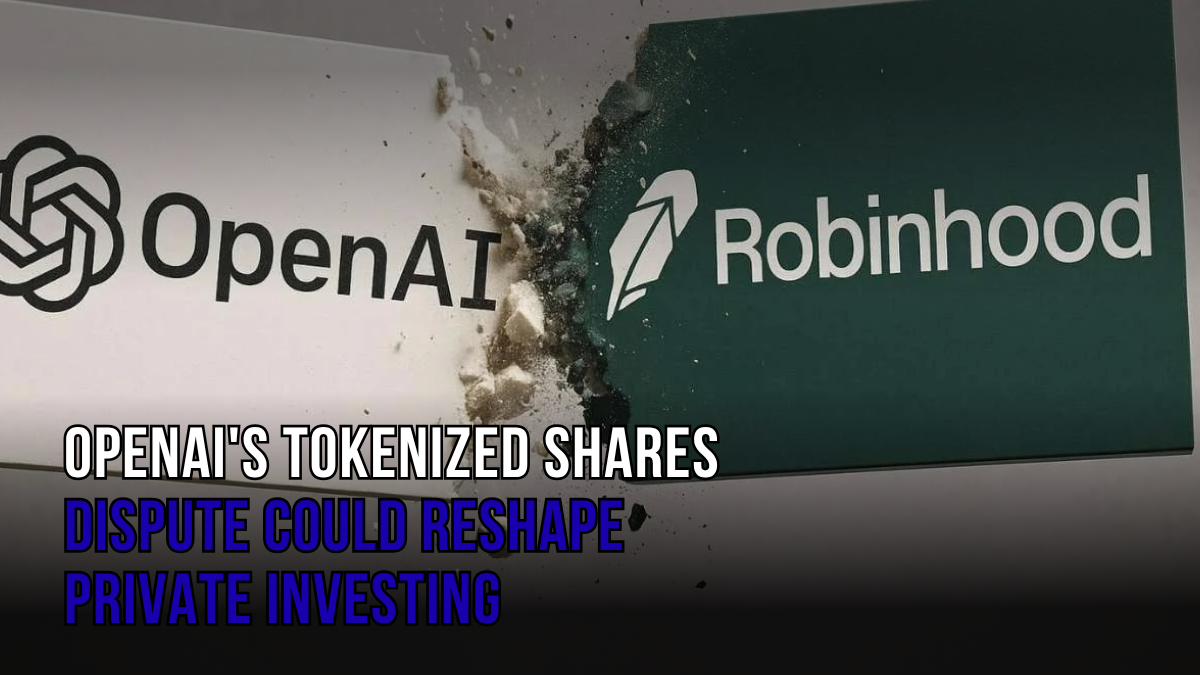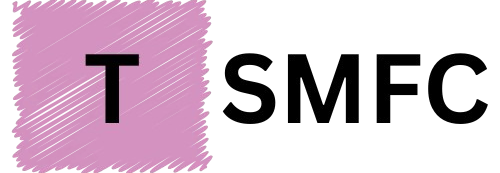The collision between traditional corporate control and blockchain innovation has reached a flashpoint. OpenAI’s public rebuke of Robinhood’s unauthorized tokenized shares offering isn’t just a corporate spat, it’s a defining moment that could determine the future of private market access.

The Unauthorized Tokenization Controversy
Robinhood made headlines at a Cannes event when CEO Vlad Tenev announced tokenized shares for private companies, including OpenAI and SpaceX. These “stock tokens” were positioned as a way to democratize access to high-value private equity typically reserved for wealthy, accredited investors.
OpenAI’s response was swift and uncompromising. The AI company issued a public statement clarifying that these tokens don’t represent actual OpenAI equity and that the company had no involvement in or approval of the initiative. “Any transfer of OpenAI equity requires our approval And we did not approve any transfer,” the statement read.
How Tokenized Private Shares Actually Work
The mechanics behind Robinhood’s offering reveal the complexity of this new financial instrument. Rather than direct equity ownership, these tokens provide “indirect exposure” through a special purpose vehicle (SPV) that holds the actual shares.
Here’s how it works:
- Robinhood creates an SPV that purchases private company shares
- Blockchain-based tokens are issued that track the SPV’s value
- Investors buy these tokens, gaining price exposure without traditional shareholder rights
- No voting rights, dividend claims, or direct corporate governance participation
This structure allows Robinhood to sidestep the need for company approval while still offering investment exposure. However, it also creates a significant gap between what investors might expect and what they actually receive.
The Regulatory Arbitrage Factor
Robinhood’s decision to launch in Europe first wasn’t coincidental. The EU’s more permissive regulatory environment for retail investment products contrasts sharply with the US, where accredited investor rules create higher barriers to entry.
This regulatory arbitrage highlights a broader trend in fintech: companies seeking jurisdictions where innovation can flourish before regulatory frameworks catch up. The strategy has precedent in the cryptocurrency space, where many platforms have operated from crypto-friendly jurisdictions while serving global markets.
Corporate Control Meets Blockchain Disruption
The OpenAI-Robinhood dispute exposes fundamental tensions between two worldviews. Traditional corporate governance emphasizes control, authorization, and shareholder protection. Blockchain advocates champion open access, disintermediation, and financial democratization.
OpenAI’s position reflects legitimate concerns about brand association and investor protection. When a company’s name is attached to a financial product without consent, it creates potential liability and confusion. If token holders believe they own “real” OpenAI shares, they might make investment decisions based on incorrect assumptions.
The Broader Tokenization Trend
Despite OpenAI’s pushback, the tokenization of real-world assets is accelerating. Other platforms like Republic have launched similar offerings, and the concept extends beyond private equity to include real estate, commodities, and other traditionally illiquid assets.
The appeal is clear: tokenization can increase liquidity, reduce minimum investment thresholds, and create new forms of fractional ownership. However, the legal and regulatory frameworks haven’t kept pace with the technology.
What This Means for Private Market Access
The controversy raises critical questions about the future of private market investing:
For Companies: How much control should private companies have over secondary market trading of their shares? Can they prevent tokenization entirely, or must they adapt to new forms of indirect exposure?
For Investors: What protections exist when tokenized products don’t confer traditional ownership rights? How can retail investors distinguish between legitimate opportunities and potentially misleading offerings?
For Regulators: How should financial authorities balance innovation with investor protection? What disclosure requirements should apply to tokenized derivatives of private equity?
The Legal Minefield
Legal experts warn that unauthorized tokenization could breach shareholder agreements that restrict share transfers. This creates a scenario where private companies might refuse to recognize token holders’ claims, potentially rendering the tokens worthless from an ownership perspective.
The complexity increases when considering cross-border transactions. A token issued in Europe based on US company shares involves multiple jurisdictions with different legal frameworks and investor protections.
Looking Ahead: Authorization vs. Innovation
The resolution of this dispute could set important precedents for the tokenization industry. If companies can successfully block unauthorized tokenization, it might slow the democratization of private markets. If tokenization platforms can operate without company consent, it could lead to a proliferation of derivative products with unclear legal standing.
The most likely outcome involves a middle path: increased collaboration between tokenization platforms and private companies, with clear authorization frameworks and enhanced investor disclosures. This would preserve the innovation potential while addressing legitimate concerns about consent and investor protection.
The Democratization Debate
At its core, this controversy is about access to investment opportunities. Robinhood’s mission to “democratize finance” resonates with many who feel excluded from high-growth private markets. However, democratization without proper safeguards can lead to uninformed investment decisions and financial losses.
The challenge lies in expanding access while maintaining appropriate investor protections. This might involve improved financial education, clearer product disclosures, and regulatory frameworks that distinguish between different types of tokenized products.
Preparing for the Tokenized Future
As the dust settles on this particular dispute, several trends seem clear:
Increased Regulatory Attention: Regulators will likely develop more specific frameworks for tokenized assets, particularly those involving unauthorized use of company names or brands.
Enhanced Disclosure Requirements: Platforms offering tokenized products will face pressure to clearly explain the differences between their offerings and traditional equity ownership.
Company Adaptation: Private companies may need to develop policies for handling tokenization requests and protecting their brand associations.
Investor Education: The complexity of tokenized products will require better financial literacy and clearer communication about risks and rights.
The OpenAI-Robinhood dispute represents more than a corporate disagreement, it’s a glimpse into the future of finance. As blockchain technology continues to disrupt traditional investment models, similar conflicts will emerge. The resolution of these tensions will determine whether tokenization becomes a tool for genuine financial democratization or remains a complex instrument accessible only to sophisticated investors.
The outcome will shape not just the future of private market access, but the broader relationship between innovation and regulation in the digital age. For now, potential investors should approach tokenized private shares with caution, understanding exactly what they’re buying and what rights they do and don’t receive.
FAQs: Frequently Asked Questions
Q. What are tokenized shares?
A. Tokenized shares are digital representations of real-world equity shares, created using blockchain technology. They allow fractional ownership and can be traded on digital asset platforms.
Q. Why did OpenAI reject Robinhood’s tokenized shares?
A. OpenAI publicly rejected the tokenized shares offered by Robinhood, citing concerns about inaccurate representations, lack of authorization, and potential risks for investors.
Q. Are tokenized shares legal?
A. The legality of tokenized shares depends on jurisdiction and compliance with regulatory frameworks. Investors should verify whether the offering adheres to securities laws in their region.
Q. What risks do investors face with tokenized shares?
A. Investors face risks such as lack of voting rights, limited liquidity, regulatory uncertainty, and potential issues with the accuracy of information provided about the tokenized assets.
Q. How do tokenized shares impact traditional private markets?
A. Tokenized shares can increase accessibility to private markets, allowing smaller investors to participate. However, they also raise challenges related to governance, control, and regulation.
Click HERE For More
